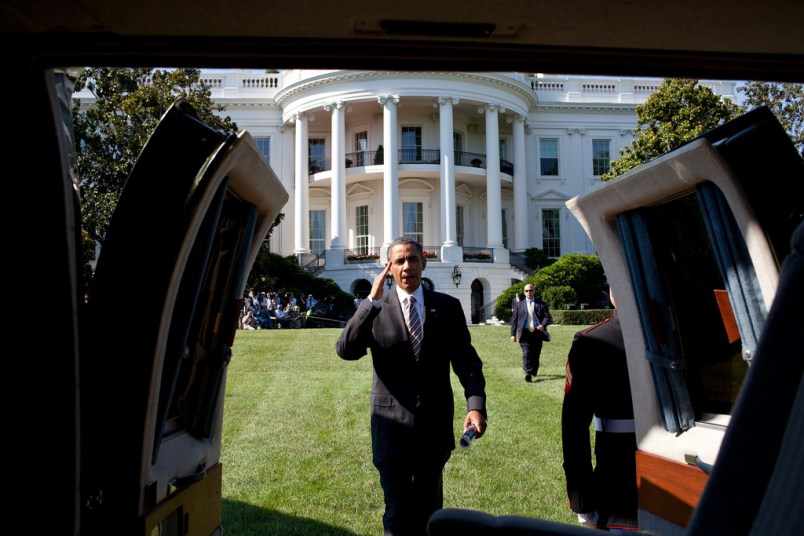Barack Obama’s second term in office effectively began three weeks ago, after he captured an early re-election dividend in the form of a tax increase on top earners and arrested the fall over the fiscal cliff.
Now, on the eve of his second inaugural, Democrats and Republicans are steeling themselves for the big budget fights lying ahead: debt ceiling, sequestration and a possible government shutdown. But even if Obama navigates the dicey budget impasses and is able to pad his first-term legislative accomplishments with comprehensive immigration reform, gun control, and a cleaner federal budget, it will only have a marginal impact on his political legacy, which ultimately hinges on the durability of the things he accomplished during his first four years in office.
His legacy, in other words, depends more upon solidifying his early successes — effectively implementing the health care law, further nurturing the economy, extracting the U.S. from foreign wars — than it does upon advancing the agenda he set out during his re-election campaign.
“If the war in Afghanistan comes to an end, the economy continues to recover and he implements the health care law effectively, he’ll be remembered as a competent president and a successful president,” says Julian Zelizer, a history professor at Princeton University. “Just how good will be determined years after he leaves office and changes in how we interpret success based on the political times.”
Obama’s first four years in office were beset by severe disagreements between the left and the right, and among liberals, over the strength of Obama’s leadership, the wisdom of his policies, his commitment to the ideals he articulated as a candidate. But the sheer magnitude of his first-term achievements will come to dwarf those disagreements — if Obama leaves office amid a strong economy, the author of a well-functioning universal health care system, and the architect of the country’s extrication from costly and protracted foreign entanglements.
“If the economy continues to improve he’ll be credited with it, whether or not his policies were ideal,” Zelizer adds. “The recovery will overwhelm any disagreements about his policies. The same is true for foreign affairs. If he brings both wars to an end and there is some stability in the Middle East, it will overwhelm the criticisms of his foreign policy.”
Thus the immediate fights over the debt limit and automatic spending cuts set to take effect at the end of February have the potential to inflict damage not only on workers still suffering from the 2008-2009 economic crisis, but on Obama’s ultimate claim, years from now, to having alleviated their suffering.
A similar logic applies to the Affordable Care Act, which takes full effect next year, but will have to be operating fairly smoothly by the end of 2016 or else face perpetual attacks and perhaps major changes after he leaves office.
“He’ll have four years to cement his first-term accomplishments,” Zelizer told me. “He’ll have to make the health care law something that works for people, so that it can’t be rolled back after he’s out of office. This should be his most important priority.”
That’s not to diminish the importance of the objectives he’s set out for his second term.
“If he can get an immigration bill passed, that will be an important to his legacy, not just because of the magnitude of the accomplishment, but because of the impact it will have on his party, strengthening his party, given the demographic shift the country’s undergoing,” Zelizer explained.
The other big question mark — climate change — poses the greatest threat to his legacy in the long-term. History won’t look kindly upon any of the country’s current political leaders decades from now if their failure to rein in greenhouse gas emissions wrecks the planet. And perhaps that line of thinking will compel Obama to give it a serious try. But it’s a much harder political lift — and unlike the other unchecked items on his agenda, he’s set expectations on this issue very low.










